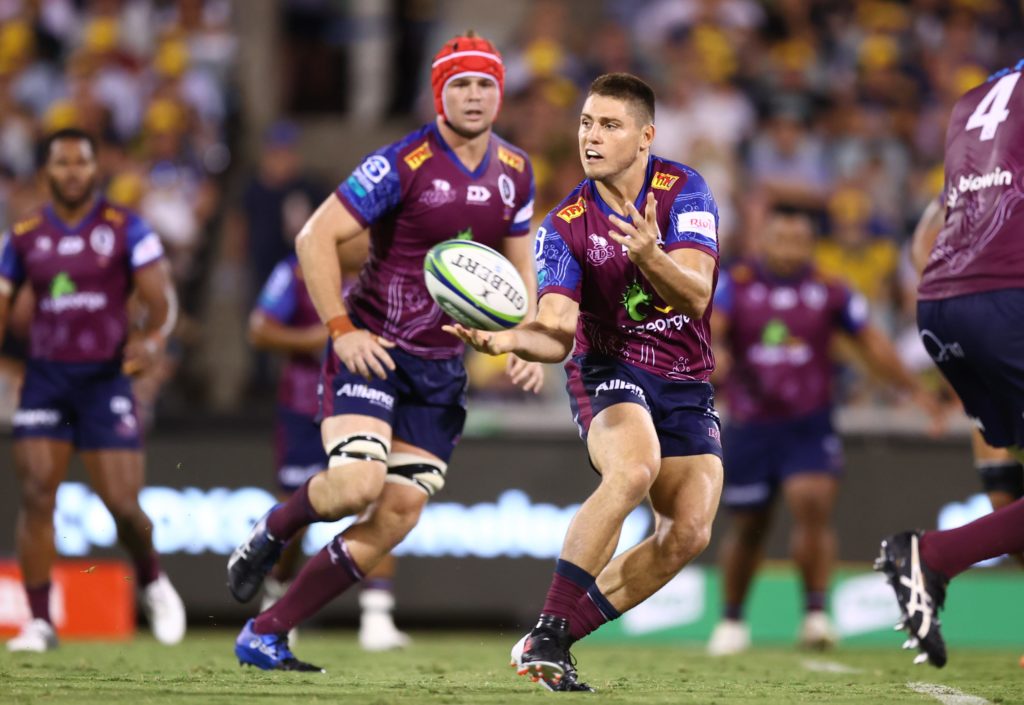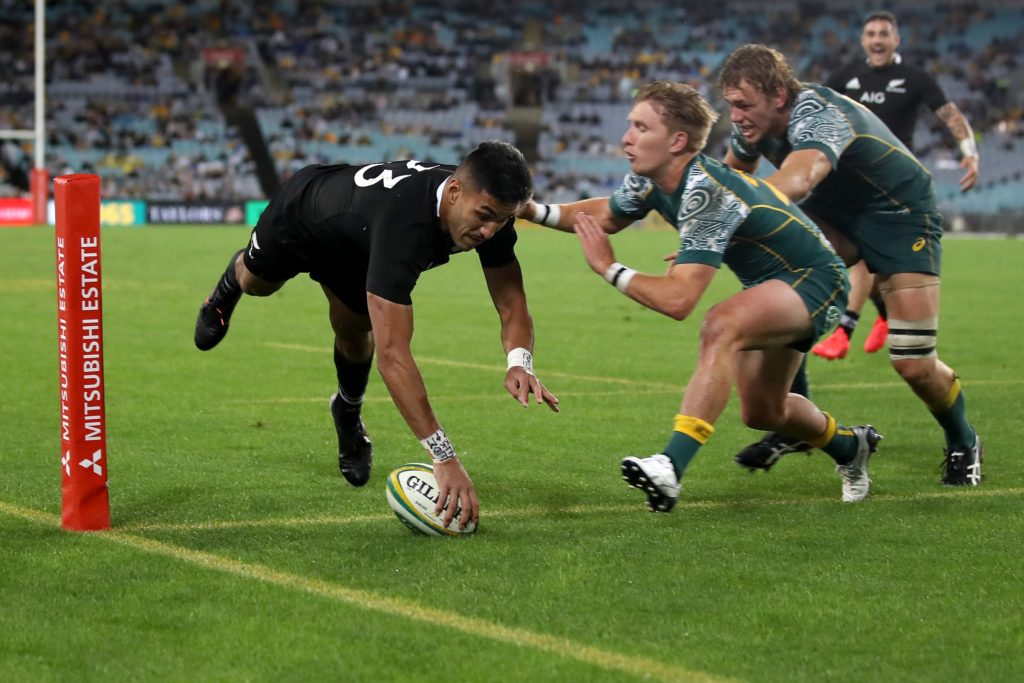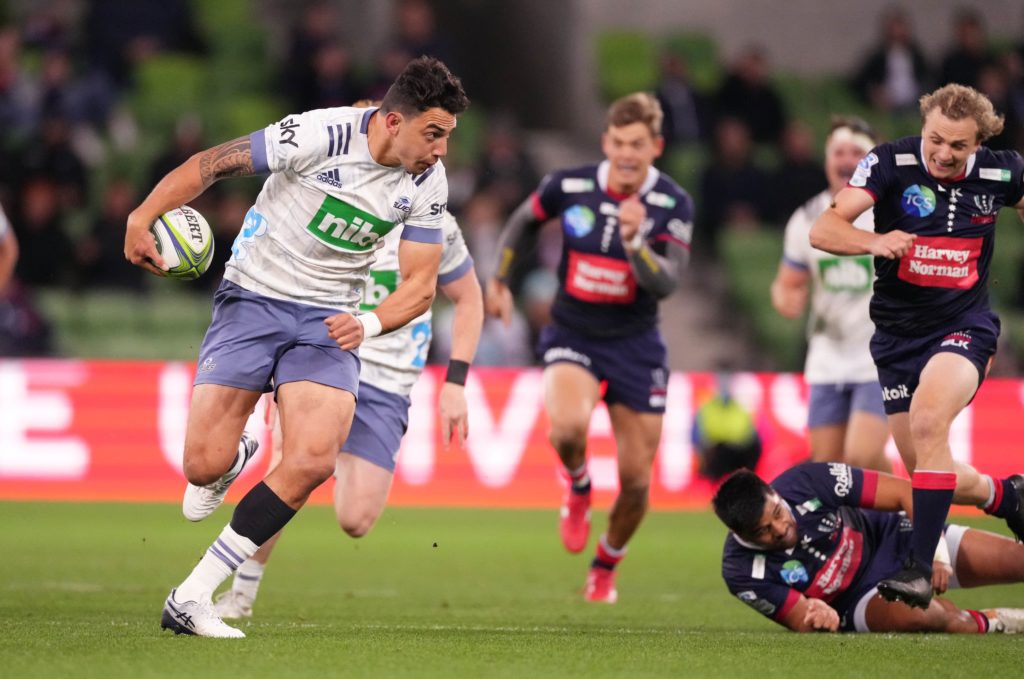Super Rugby is starting to feel like an unfixable problem and by extension it is inflicting hard to solve issues on the All Blacks.
It’s an awkward place in which Super Rugby now finds itself as it started life as something vibrant and breath-taking back in 1996.
It was intense, fast, brutal and brilliant and while Kiwi teams won the first five titles, it never felt like they had it all their own way as they do now. There was no sense of New Zealand being dominant – of their teams, all of them, being untouchable the way there is now.
When the competition ran as a straight round-robin – first with 12 teams between 1996 and 2005 and then with 14 between 2006 and 2010 – there was a balance to it, an equity almost, that saw a variety of teams reach playoffs and finals.
In the 15 seasons to 2010, there were only four clubs who won titles – Crusaders, Blues, Bulls and Brumbies – but there was never any consistency about who made the semi-finals or final.

The unpredictability of it all, was best epitomised by the Brumbies, who crept into the competition as an assortment of odds and sods discarded by the Reds and Waratahs. They were seen as being there to make up the numbers – Australia’s third team when they didn’t supposedly have enough talent for a third team and yet they made the final in 1997 and 2000 and won titles in 2001 and 2004.
Nor was there any secondary narrative of All Blacks domination playing out. Not the way there is now. As much as Super Rugby was an open field, so too was the Tri Nations. New Zealand won the majority of titles, but not by the same country mile they have been since 2012.
There is a strong and undeniable correlation between New Zealand Super Rugby domination and All Blacks Rugby Championship since 2012. In the eight Super Rugby tournaments between 2012 and 2019, New Zealand sides won seven – which would have been eight but for an erroneous refereeing decision that enabled the Waratahs to beat the Crusaders in the last minute of the 2014 final.
Over that same period, the All Blacks won the Rugby Championship six times – four of which they did so undefeated and it’s apparent that this lop-sided feel to Southern Hemisphere rugby began developing with the arrival of the Super Rugby conference system in 2011. This is when the number of games played between teams from the same country increased.
They play like a piano accordion; they spread you out, then tighten you up, then spread and tighten you up again. The Reds got a bit rattled, started following the Crusaders around and they’ll lead you on a merry dance.
Former Wallabies coach on the strengths of the Crusaders
By 2016, when the Sunwolves, Kings and Jaguares had been welcomed, the competition had even less balance as the South African playing base was stretched too far having to populate six teams while the travel burden disproportionately impacted them, too.
New Zealand’s sides have been getting progressively stronger and better as a result of playing against each other more regularly.
Of all the SANZAAR partners, they are the only nation with the requisite depth of resource to operate five, evenly matched and competitive teams.
And so what has happened is that New Zealand’s Super Rugby players have been exposed to an intensity of rugby for the last six or seven years that none of their Sanzaar partners have. Meanwhile, Australia have been forced to pick too many players not up to standard and then the problem has been intensified by having to play more games against each other.
While New Zealand has enjoyed a virtuous cycle, in Australia it has been vicious, evidenced by the statistics.
Australian sides have won just three of 55 games in New Zealand since 2015. There was a period in 2018 when New Zealand sides were collectively on a 40-game winning streak against Australian teams.

If anything, the extended period of Australian teams not playing anyone but themselves, appears to have worsened the situation. After two rounds of Super Rugby Trans-Tasman, New Zealand sides had won all 10 games, with a combined score of 416-214 and an average winning margin of 20 points.
The most alarming result in those 10 games, came in Brisbane when the respective champions of Australia, the Reds, met the respective champions of New Zealand, the Crusaders.
The latter won 63-28, prompting Stan commentator, former Wallaby coach, Michael Cheika to say: “We had a saying in the old days, ‘welcome to first grade’, and it was first grade tonight. They were top quality.
“They play like a piano accordion; they spread you out, then tighten you up, then spread and tighten you up again. The Reds got a bit rattled, started following the Crusaders around and they’ll lead you on a merry dance.
“We’ve been pumped alright, but you just have to fight back next week, get over it and get back up on your bike and win the next game.”
The evidence is there to say that since 2016, the All Blacks have got better at more regularly beating the Wallabies by bigger margins… But this dominance has not helped them build the wider range of skills and experiences they need to dominate the international stage as they once did.
There’s two distinct issues that stem from this gulf in quality. The first sits with the future of Super Rugby, which next year intends to be a 12-team round-robin again, with five teams from New Zealand, five from Australia and Moana Pasifika and Fiji Drua.
At the moment, it’s hard to see that being anything than other massively lop-sided again, with the five Kiwi teams dominating.
But the bigger issue is how the competitive demise of Super Rugby is impacting the international scene, particularly the All Blacks.
The evidence is there to say that since 2016, the All Blacks have got better at more regularly beating the Wallabies by bigger margins. Their win ratio against Australia between 2016 and 2020 is much the same as it was between 2010 and 2015, but the All Blacks have inflicted some memorably heavy defeats in the recent period – scoring 54 points in 2017, a 36-0 victory in 2019 and a record winning margin of 38 points in Sydney last year when they won 43-5.
But this dominance has not helped them build the wider range of skills and experiences they need to dominate the international stage as they once did.
Between 2010 and 2015 the All Blacks lost just six tests – three to Australia, two to South Africa and once against England.

The All Blacks have lost nine tests since 2016 and drawn three others. They suffered two defeats to Ireland, one each to England, Argentina, South Africa and the British & Irish Lions, with two draws against the latter two.
Of the 12 tests they haven’t won, eight have been against physically oppressive teams who build their attack around their set-piece, collision work, box-kicking and aggressive linespeed.
This style of rugby has never sat easily in New Zealand’s wheelhouse. The All Blacks have the capacity to play a tight, grinding-kick game but it’s not their preferred means of attacking. It’s not a style any of their five teams regularly employed in Super Rugby Aotearoa – although the Crusaders did use their scrum as a weapon – but the general levels of physicality, speed and defensive impacts clearly set the players up to be ready for the intensity of test football.
As Crusaders coach Scott Robertson said after his side had crushed the Reds: “The Aotearoa was tough, brutal and the guys talk about it like playing test matches.
I think some errors creep in that you wouldn’t get against New Zealand teams at critical times. They let you off the hook sometimes when they have you under pressure, but they’re tenacious.
Blues coach Leon MacDonald following his team’s win over the Waratahs
“I would have liked Australian teams to knock off a few of the Kiwi teams to make the ladder a little more even. There’s a gulf isn’t there, which is a real shame.”
And herein lies the problem – the insular, heavy exposure to themselves in Super Rugby has made New Zealand’s players brilliant at a specific style of expansive, counter-attack rugby, but has arguably lessened their ability to play against non-adventurous international sides.
The deterioration of Australian teams across the board has emphasised both sides of that equation. Blues coach Leon MacDonald said last weekend, after his team had defeated the Waratahs 48-21, that the real difference between the two sides was the inability of the Australians to keep the pressure on and stress his team in defence or attack.
“They’re willing. I think some errors creep in that you wouldn’t get against New Zealand teams at critical times,” MacDonald said. “They let you off the hook sometimes when they have you under pressure, but they’re tenacious. I thought the Waratahs were really tenacious; they hung in there right until the very end.”
New Zealand’s teams have become used to playing a certain way – a way that has enabled them to dominate Super Rugby and a way that goes 80 per cent towards preparing them for the typical test season.

What’s missing is that exposure to rugby built on attrition: rugby without space, flair or risk. It has ingrained a default way of playing in New Zealand’s best athletes and under pressure, they revert to this belief they can pass and run their way out of trouble.
The lack of consistency in Australia has deepened this mind-set as New Zealand teams are not being put under enough pressure and are therefore able to take risks, make mistakes and get away with them.
It’s not that All Blacks have become complacent, they are simply reflective of the environments to which they are exposed in club rugby.
Look back to the 2019 World Cup semi-final and any mistakes the All Blacks made that night, England punished them.
It was the same when they lost to Ireland in November 2018 – the All Blacks had a default way of playing under pressure, just as they unsuccessfully reverted to type when they encountered a defensively impenetrable Argentina last year.
Super Rugby is not the world’s toughest provincial competition anymore. Everyone can live that, but they can’t if it means it no longer prepares the All Blacks to retain and hold the number one position in the world rankings.



Comments
Join free and tell us what you really think!
Sign up for free